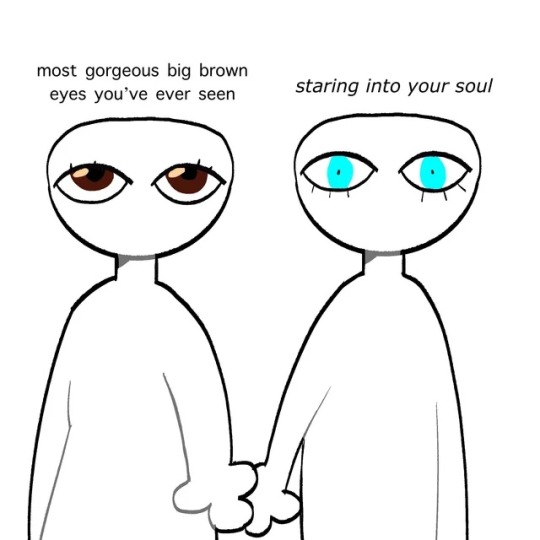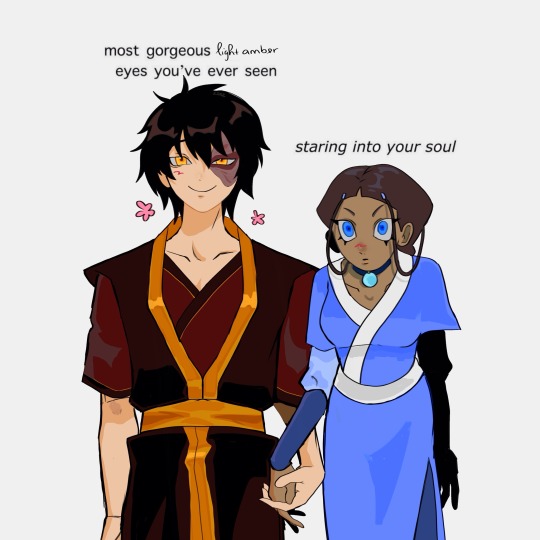Text
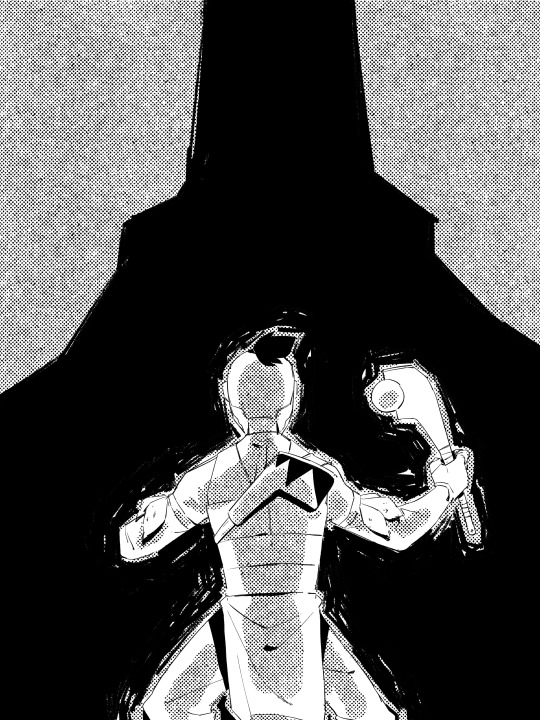
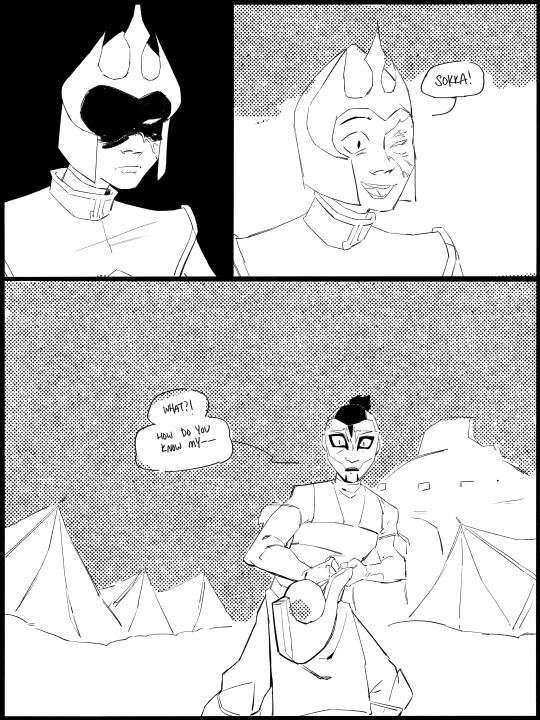
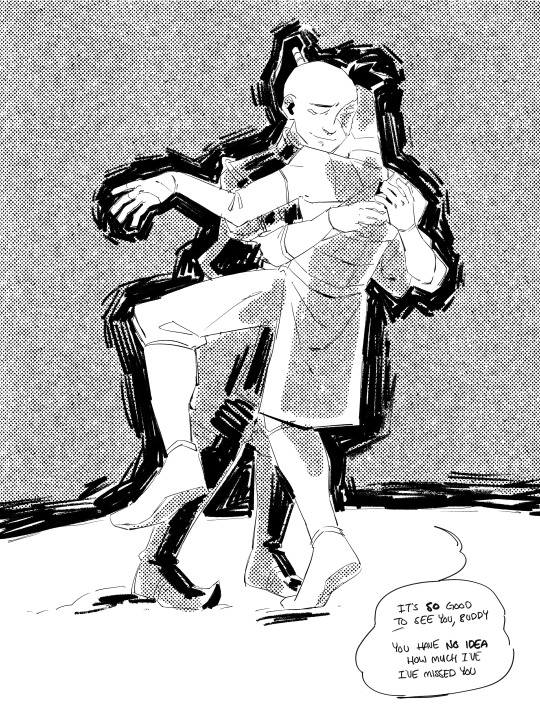
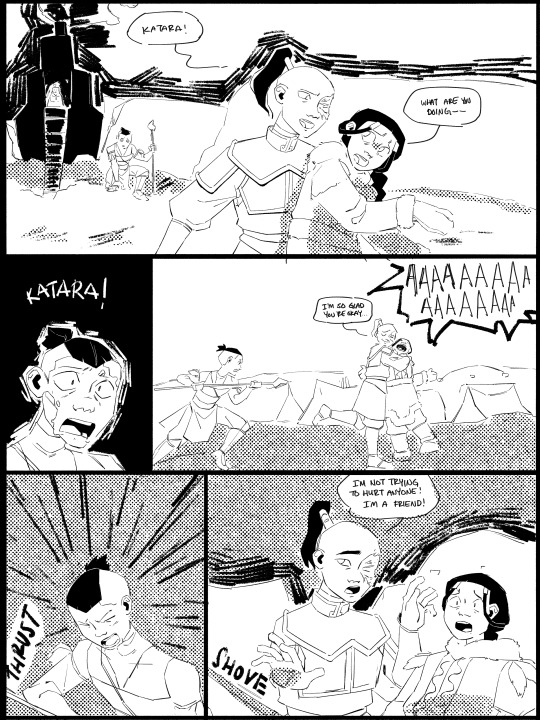
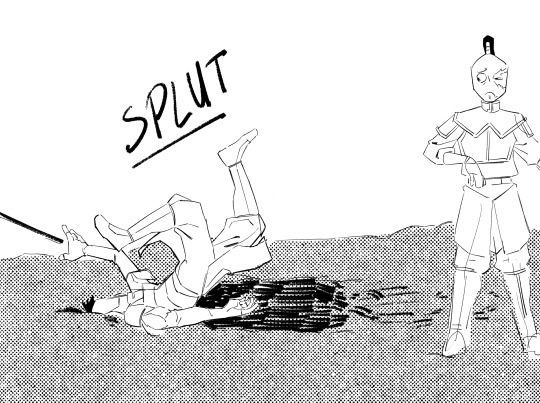


AU where the timeline gets reset but Zuko still has all his memories. Now in comic form
The backstory for this drawing
6K notes
·
View notes
Text

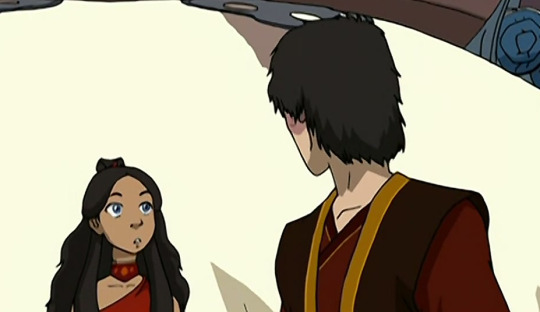
I love how Zuko and Katara immediately turn to look at each other when Toph asks where Aang is.
748 notes
·
View notes
Text
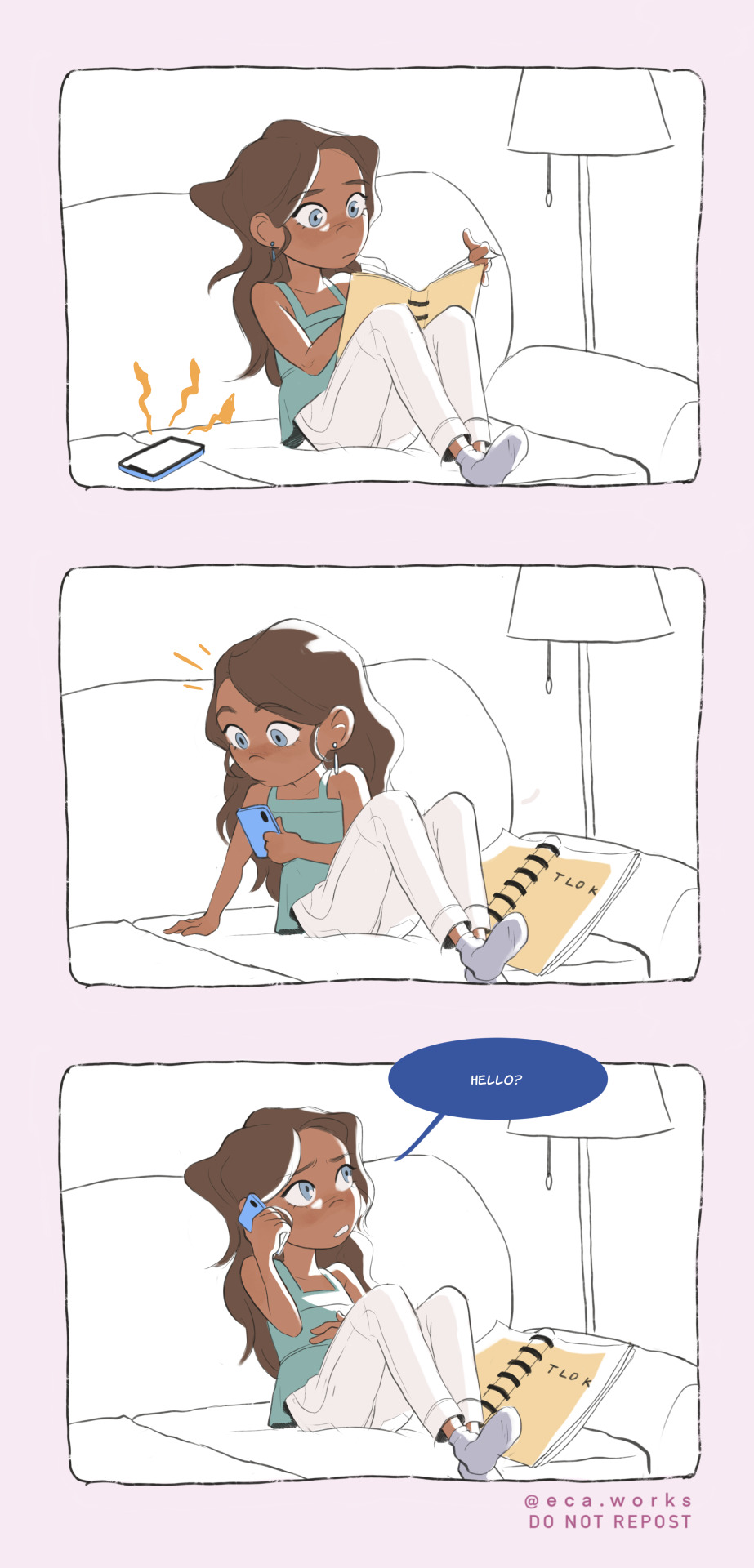
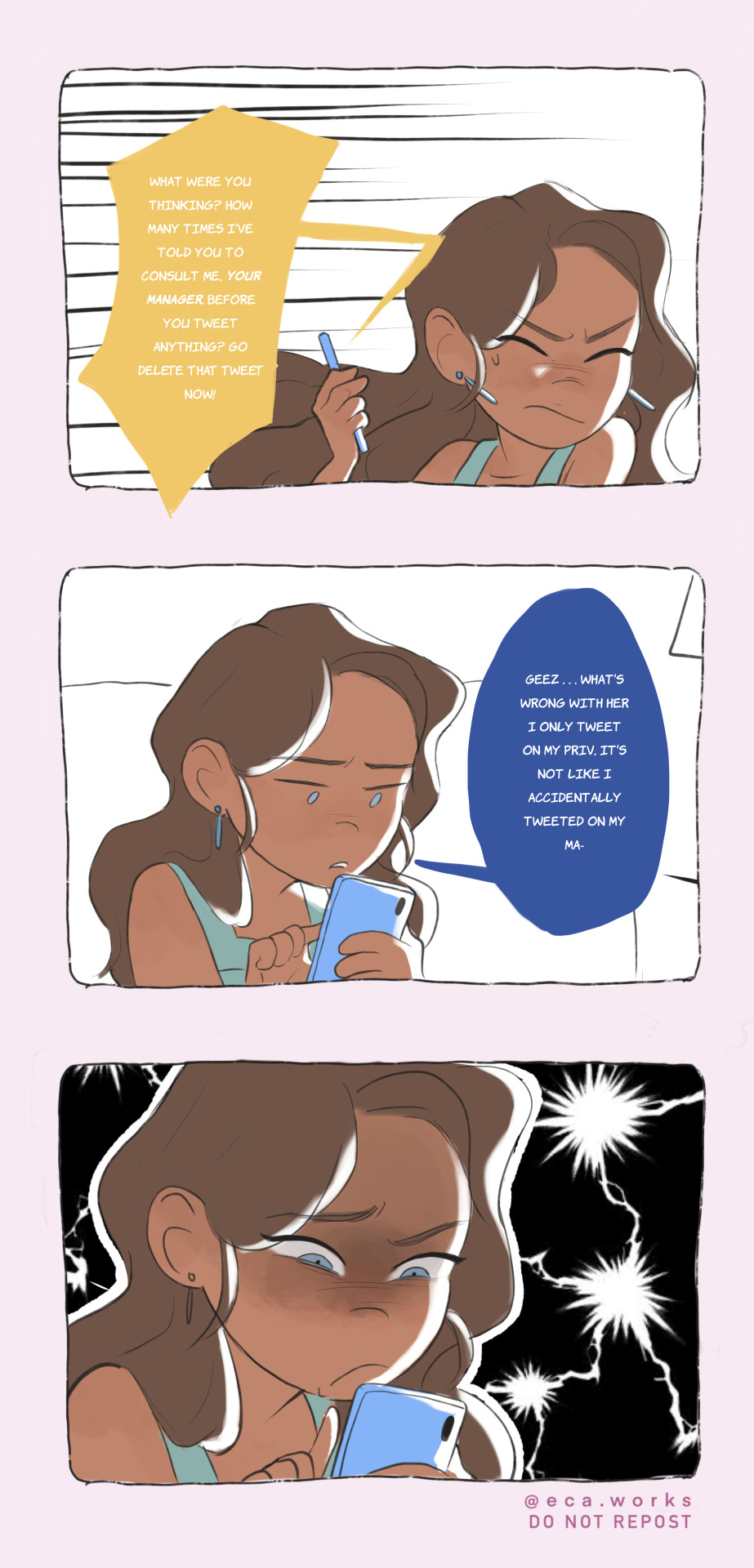
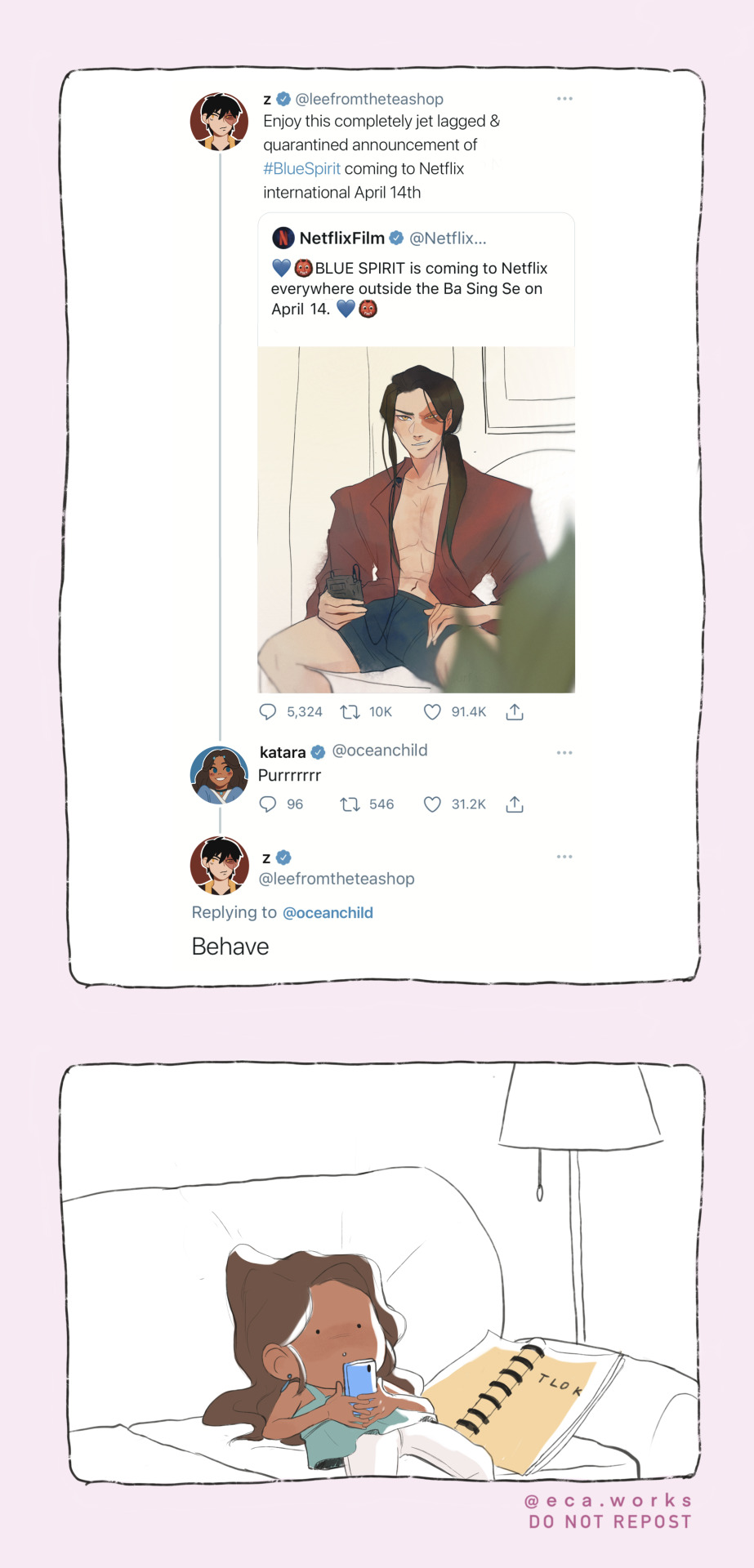

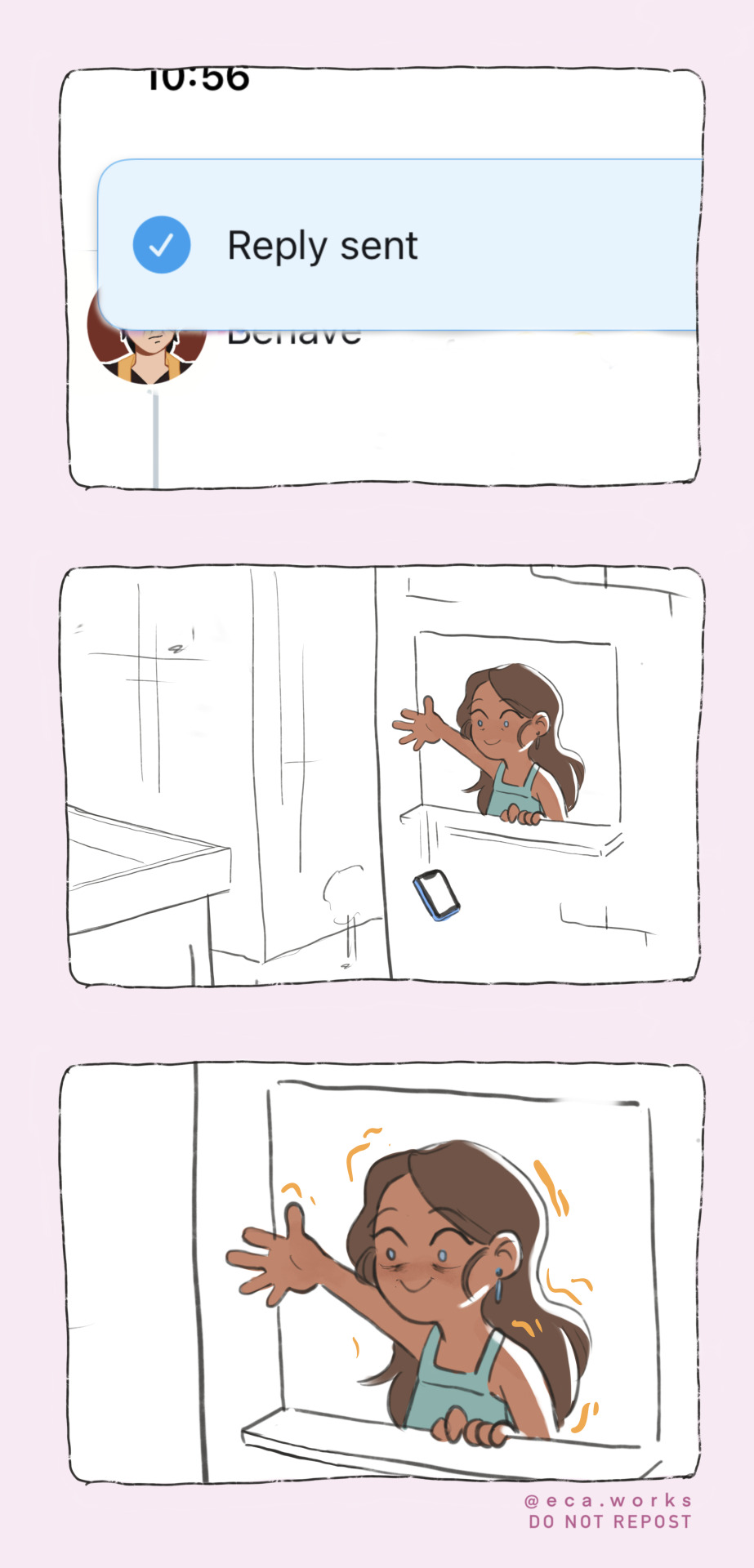

ZK Actor AU comic Part 2
This was based on a tweet I’ve been itching to draw. When I first saw it I knew I had to draw it and make it zutara because DUH. So yeah I did a different artstyle so I can finish it quickly.
If you have any headcanons in this AU please feel free to share :>>> pls my brainrot for this AU is so intense
Part 1 of this comic (here)
2K notes
·
View notes
Text

he learned from the best of the best
i wish i could try iroh’s tea
964 notes
·
View notes
Text
the performative accusation that shipping zutara (and occasionally this criticism is levied at jinko/zukka) is colonialist apologism has been addressed in some excellent posts, explaining the inaccuracies and problematic implications of this logic far better than i ever could - like this post and this one and this one and this one and this one.
and i know this topic has been talked about to death, but if you could indulge my contribution for a moment, i just find it interesting how this sentiment results from the cognitive dissonance of atla fans being unable to reconcile with the idea of their favorite show's political beliefs not lining up with their own.
atla is a largely philosophical children's show that at its core deals with themes of love, redemption, and destiny vs. free-will. atla examines these themes through an anti-colonalist, anti-imperalist lens that deconstructs the idea of racial divisiveness and the idea that people of different ethnicities are inherently different. this is message is pretty explicitly stated by guru pathik:
Guru Pathik: "The greatest illusion of this world is the illusion of separation. Things you think are separate and different are actually one and the same."
Aang: "Like the four nations?"
Guru Pathik: "Yes. We are all one people. But we live as if divided."
and also by uncle iroh:
"It is important to draw wisdom from many different places. If you take it from only one place, it becomes rigid and stale. Understanding others, the other elements and the other nations will help you become whole."
this theme is developed across three full seasons, with the crux of this message culminating in zuko's friendships with the gaang - despite coming from different nationalities and different backgrounds, they have all had their own experiences being hurt by the fire nation and work together to take down the oppressive fire nation government. the question of destiny vs. free will is also explored through zuko's character - despite starting off as an antagonist, he develops into a symbolic representation of how the fire nation's oppression hurts its own citizens. he unlearns the fire nation's imperialist propaganda while simultaneously unlearning his father's abuse. rather than following misguided beliefs of what he thought his destiny was as the heir to the throne, instead he forges his own path.
thus, to claim that zuko can never form a deep and meaningful relationship with any of the gaang because of his nationality goes unequivocally against the themes of the show. and a major part of this is because these are fictional characters being used to analyze different theoretical questions within the show and in some cases, are used as symbolic representations of different philosophical ideas - their friendships and their character arcs serve a purpose within the text that cannot be easily transcribed onto real-life dynamics between people.
it's illogical to criticize fans who are choosing to understand atla at the level of the themes that are presented by the text - who are interested in exploring similar philosophical questions brought up by the show through the context of relationships.
if you don't like the themes of forgiveness and redemption that atla explores, your criticism should be aimed at the writing of the show itself rather than other fans. because you are giving far more thought to the "implications" of a close friendship or romantic relationship between someone from an imperalist nation and someone from an oppressed nation than the writers ever did. (and if you fall in this camp of people, i would hope you wouldn't be reblogging fanart of zuko and the gaang together while simultaneously claiming zuko could can never escape the sins of his ancestors and can never form a deep relationship based on trust and intimacy with katara or sokka or jin - because that would just be hypocritical).
and as a side note, people seem to apply this flawed logic to zutara far more than other ships solely because the show spends the most time exploring the complicated nature of fire nation imperalism in the interactions between zuko and katara in the latter half of b3. this is because they've been juxtapositioned against each other and paralleled with aang since the beginning of the show in ways that toph, sokka, and suki are not, who have mostly been used to examine different themes. there simply isn't enough time to explore these complicated themes with all the other characters, even if they theoretically exist in zuko’s dynamics with these characters, so the writers focus the most on zuko's relationships with katara and aang, and these relationships are given far more narrative weight, so have more content to criticize. but zuko and katara also canonically become friends by the end of the show. if you want to discount the existence of their friendship, claiming that it will always be tainted by the fire nation's oppression regardless of what is shown in the text, then you also have to discount zuko's friendships with aang, suki, toph, and sokka - because even if this isn't shown as a permanent barrier to their friendships in the show, it’s also not shown as a permanent barrier to his friendship with katara. if your logic is solely based on the idea that a person's identity in a relationship as a colonizer or a victim is fixed and unchanging regardless of character development, this would apply to zuko's friendships with everyone else as well.
#also reblogging this version#+ prev tags#like it’s a piece of children’s media steeped in liberal optimism and if you have a problem with it don’t draw the line at a non-canon ship#which is fine because again it’s a piece of children’s media and i show atla to my 9yo cousin to teach him values like courage and empathy#the text is not equipped to make broader points about decolonial theory#and in fact when lok tried to make more political points it unequivocally showed just how much the creators are liberals#absolutely unhinged for people to give them credit for that#atla colonization discourse#zuko#katara#zutara
258 notes
·
View notes
Text
the performative accusation that shipping zutara (and occasionally this criticism is levied at jinko/zukka) is colonialist apologism has been addressed in some excellent posts, explaining the inaccuracies and problematic implications of this logic far better than i ever could - like this post and this one and this one and this one and this one.
and i know this topic has been talked about to death, but if you could indulge my contribution for a moment, i just find it interesting how this sentiment results from the cognitive dissonance of atla fans being unable to reconcile with the idea of their favorite show's political beliefs not lining up with their own.
atla is a largely philosophical children's show that at its core deals with themes of love, redemption, and destiny vs. free-will. atla examines these themes through an anti-colonalist, anti-imperalist lens that deconstructs the idea of racial divisiveness and the idea that people of different ethnicities are inherently different. this is message is pretty explicitly stated by guru pathik:
Guru Pathik: "The greatest illusion of this world is the illusion of separation. Things you think are separate and different are actually one and the same."
Aang: "Like the four nations?"
Guru Pathik: "Yes. We are all one people. But we live as if divided."
and also by uncle iroh:
"It is important to draw wisdom from many different places. If you take it from only one place, it becomes rigid and stale. Understanding others, the other elements and the other nations will help you become whole."
this theme is developed across three full seasons, with the crux of this message culminating in zuko's friendships with the gaang - despite coming from different nationalities and different backgrounds, they have all had their own experiences being hurt by the fire nation and work together to take down the oppressive fire nation government. the question of destiny vs. free will is also explored through zuko's character - despite starting off as an antagonist, he develops into a symbolic representation of how the fire nation's oppression hurts its own citizens. he unlearns the fire nation's imperialist propaganda while simultaneously unlearning his father's abuse. rather than following misguided beliefs of what he thought his destiny was as the heir to the throne, instead he forges his own path.
thus, to claim that zuko can never form a deep and meaningful relationship with any of the gaang because of his nationality goes unequivocally against the themes of the show. and a major part of this is because these are fictional characters being used to analyze different theoretical questions within the show and in some cases, are used as symbolic representations of different philosophical ideas - their friendships and their character arcs serve a purpose within the text that cannot be easily transcribed onto real-life dynamics between people.
it's illogical to criticize fans who are choosing to understand atla at the level of the themes that are presented by the text - who are interested in exploring similar philosophical questions brought up by the show through the context of relationships.
if you don't like the themes of forgiveness and redemption that atla explores, your criticism should be aimed at the writing of the show itself rather than other fans. because you are giving far more thought to the "implications" of a close friendship or romantic relationship between someone from an imperalist nation and someone from an oppressed nation than the writers ever did. (and if you fall in this camp of people, i would hope you wouldn't be reblogging fanart of zuko and the gaang together while simultaneously claiming zuko could can never escape the sins of his ancestors and can never form a deep relationship based on trust and intimacy with katara or sokka or jin - because that would just be hypocritical).
and as a side note, people seem to apply this flawed logic to zutara far more than other ships solely because the show spends the most time exploring the complicated nature of fire nation imperalism in the interactions between zuko and katara in the latter half of b3. this is because they've been juxtapositioned against each other and paralleled with aang since the beginning of the show in ways that toph, sokka, and suki are not, who have mostly been used to examine different themes. there simply isn't enough time to explore these complicated themes with all the other characters, even if they theoretically exist in zuko’s dynamics with these characters, so the writers focus the most on zuko's relationships with katara and aang, and these relationships are given far more narrative weight, so have more content to criticize. but zuko and katara also canonically become friends by the end of the show. if you want to discount the existence of their friendship, claiming that it will always be tainted by the fire nation's oppression regardless of what is shown in the text, then you also have to discount zuko's friendships with aang, suki, toph, and sokka - because even if this isn't shown as a permanent barrier to their friendships in the show, it’s also not shown as a permanent barrier to his friendship with katara. if your logic is solely based on the idea that a person's identity in a relationship as a colonizer or a victim is fixed and unchanging regardless of character development, this would apply to zuko's friendships with everyone else as well.
258 notes
·
View notes
Text
Have this hc that Zuko actually enjoys eating Katara's southern water tribe recipes. Even going as far to attempt at making one to surprise her.
#read a fic once in which zuko was like#‘sea prunes are just like ocean kumquats. tastes like home’#‘it’s protein!’#and i haven’t been the same since#zutara
99 notes
·
View notes
Text
this has been discussed before but reducing female characters to the girlboss braincell holder in the name of combating misogyny in fandom is ironically also a form of misogyny
22K notes
·
View notes
Text

everything, everywhere, all at once
10K notes
·
View notes
Text
the only good thing about the desperate-to-be-listened-to antis in the zutara tag is a free blocklist. it’s mainly annoying and they can’t even write a good meta beyond “ZUTARA BAD AND GROSS HURRDURR” but it’s very kind of them to expose themselves by their gratuitous crosstagging and their usually nonsensical and very performative-morality posts
51 notes
·
View notes
Text
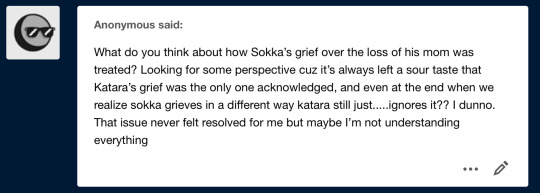
Lord, this answer got long. I’m a little embarrassed about it, but I wrote it, so it’s getting posted. It’s a literal essay. Sorry but also not?
TLDR: Yes, the show is arguably unfair to Sokka about Kya, but it also follows a pattern where Sokka stays quiet about Bad Feelings and plays by the rules established for his character. Katara, meanwhile, grieves loudly and often, and appears to be under the impression that because Sokka’s grief is silent it doesn’t exist, which also fits her character/interactions completely. Neither of them are right or wrong, but it sets them up on inevitable collisions.
Now. If you want to join me on a cactus-juice fueled descent into madness, proceed below the cut.
Lees verder
3K notes
·
View notes
Text
soaked airplane ears disgruntlement
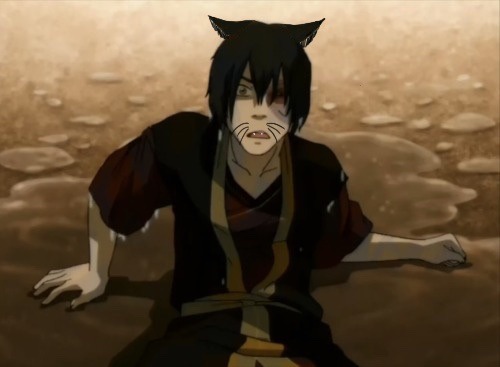
the extreme wet cat energy of this photo
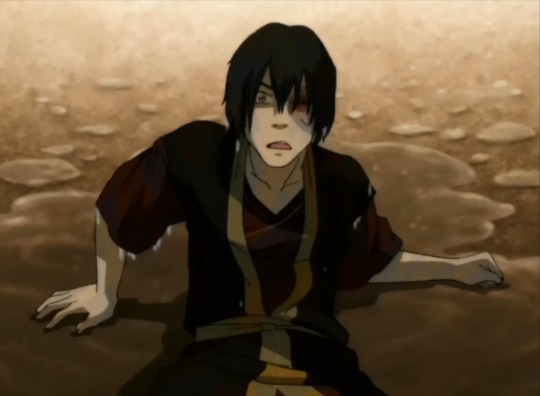
#shocked and Suddenly DAMP kitten#zuko#this looks really close to furry-ness but i'm ashamed to say i'm not a furry
40 notes
·
View notes
Text
my toxic trait is thinking that ‘then you didn’t love her like I did’ isn’t a horrible thing of katara to say actually. “she was 14 and angry and grieving that’s why she said it” she canonically saw kya’s body right after the murder. it would’ve been her, had kya not sent her away and lied to yon rha. kya took katara’s place to save her. katara was, to absolutely no fault of her own, the catalyst in kya’s murder.
sokka has a right to say he doesn’t want yon rha murdered in revenge. sokka lost his mum in a horrific way because of the southern raiders. but katara lost her mum in that same horrific way because the southern raiders wanted her dead. the kind of grief they experienced is different. katara’s is smeared with survivor’s guilt: katara took over kya’s role in the tribe to the degree that, in sokka’s memories, kya’s face is replaced with katara’s. katara’s need for revenge, her need to look yon rha in the eyes and tell him that he failed, that he murdered the wrong person—it’s a different kind of need for revenge that sokka might feel.
sokka’s logical nature might allow him to push it down until after the end of the war; katara, faced daily by a boy she connected with briefly about the loss of a mother and was then betrayed by, whose sister just tore apart a recently connected family, who was given a chance to avenge by that boy, would not have been able to. both because of her sense of justice and her more emotion-driven, righteous nature.
‘then you didn’t love her like i did’—then you didn’t experience her death the way i did; then you didn’t feel the same type of guilt i did; then you didn’t feel the same sense of responsibility i did. that’s why she said it. and i really don’t fault her for that at all.
#katara#atla#avatar the last airbender#sokka#kya#katara deserves better#ESPECIALLY in the eyes of the fandom#she’s my girl man.#i love her so much#pro katara#it's odd because sokka should rightfully be VERY hurt by what she says#but katara is also... right? to a degree?#idk she shouldn't be vilified for it as much as she does#and it's not because 'she was 14 and grieving'#it's because she experienced kya's death VERY differently than sokka did
18 notes
·
View notes
Text
Personally I think that Azula should have been redeemed simply so that she can become Zuko's horrible little advisor who whispers evil little plans to him so that he can do the exact opposite
6K notes
·
View notes

